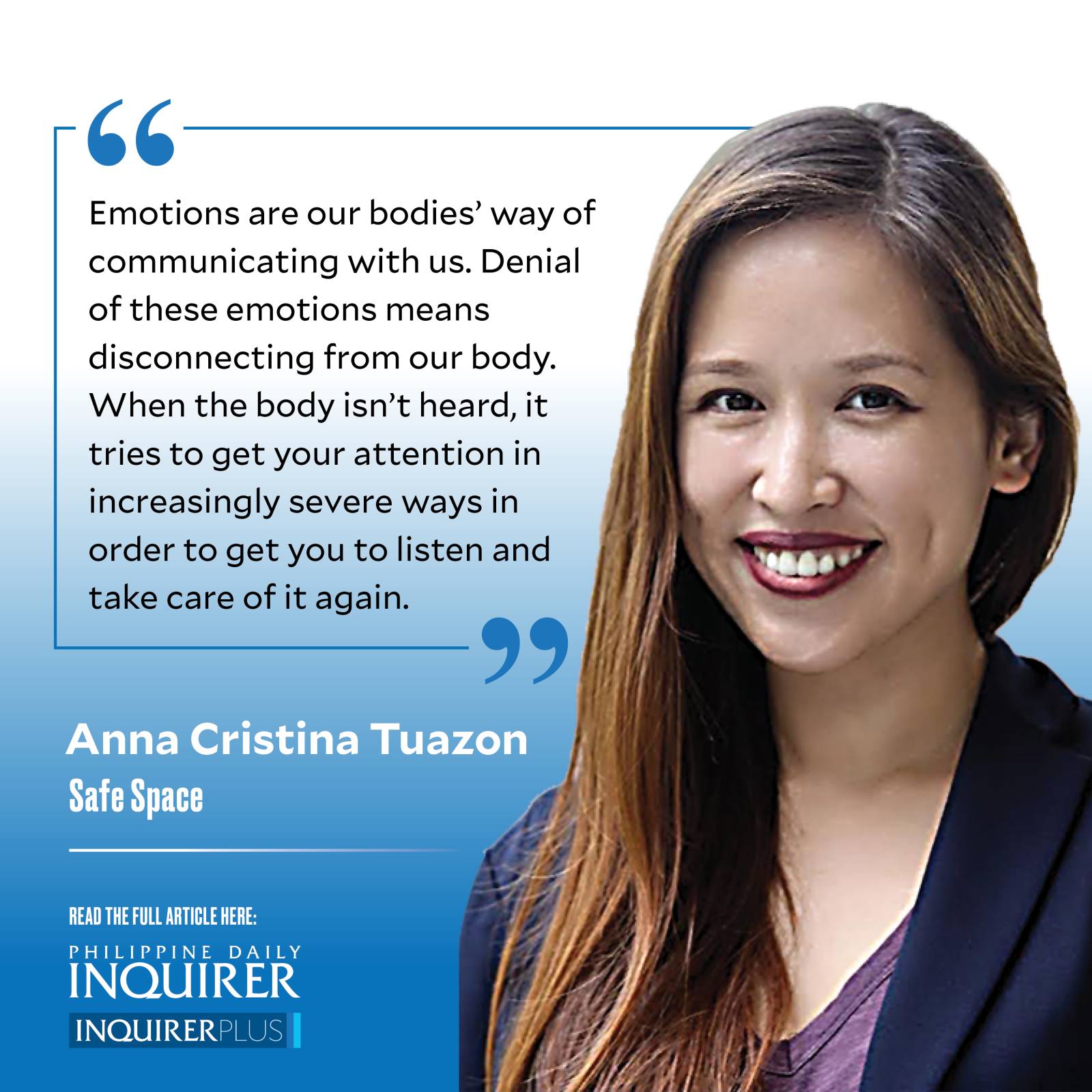‘Good vibes only’

Warning: This article does not contain good vibes only.
I’ve encountered the phrase in a variety of spaces: in social media, in dating profiles, and in therapy conversations. At least in therapy, rarely do clients talk about this mindset in a way that’s been helpful to them. Rather, they tend to feel silenced whenever people remind them to have “good vibes only,” realizing that less than positive thoughts and emotions are not welcome. This reminds me of the Pixar movie “Inside Out,” where Joy contained Sadness in a circle because she felt that Sadness wasn’t of any use. Without spoiling the movie too much, we would see how important Sadness really is to a person’s mental health.
Is “good vibes only” the evolved form of toxic positivity? Toxic positivity is a mindset that privileges positive thoughts and affect while intentionally not making space for their negative counterparts. The rejection of negative thoughts and emotions is what turns positivity into a toxic mindset. Healthy positivity, in comparison, simply asks us to acknowledge positive experiences as well as our strengths and resources. In good mental health, there should be space for both positive and negative feelings.
Unpleasant emotions serve important functions in our daily lives. Fear, for example, alerts us to potential threats such as tall heights from which we can fall, snakes that can bite us, or perhaps people that can harm us. Anxiety, defined as anticipation of an unpleasant future event, ideally helps us plan ahead, so we can be more prepared in case the event does happen. Anger represents the “fight” in the fight, flight, or freeze response of the body. It helps us shore up enough energy to actively protect ourselves from danger. Sadness is also very important; it alerts us when it is time to take a breather and seek comfort. When we are sad, we tend to want to slow down our activities or perhaps even to rest. This enables us to recharge so that we can move forward. A healthy person is able to feel these emotions and make use of them in ways that protect and recharge them. It is only when these emotions overstay their welcome and cause the opposite of their intended purpose that it turns maladaptive. When we ignore sadness’ pleas for rest and comfort, and instead insist on charging ahead without support or care for our well-being, it turns into depression. When we don’t use anxiety’s warnings to prepare, we end up feeling helpless when facing adversity. When we don’t express anger when it is needed, we might blow up at someone else who didn’t even cause our anger.
I can imagine that “good vibes only” is a reaction to the sheer volume of negative events that have happened in recent years, both locally and globally. Online discourses have also been drowned out by troll comments, provocateurs intended to rile people up, and much polarization and infighting. In a world of global pandemic, wars and invasion, and increasing authoritarian rule, it would make sense for someone to declare their personal space as a good-vibes-only zone. Certainly, in the first year of the pandemic, people suffered from so much news fatigue about COVID-19 that providers like me have had to encourage them to focus on other things or perhaps to even tune out the news. This led to the plantito/plantita craze and the numerous food trends like sushi bake, ube ensaymada, and Korean corn dogs. We definitely needed a safe haven from which we can take respite from the onslaught of problems.
At some point, however, we need to start acknowledging our problems so that we can solve them. Not allowing negative affect means that we might be ignoring credible warning signs. Emotions are our bodies’ way of communicating with us. Denial of these emotions means disconnecting from our body. When the body isn’t heard, it tries to get your attention in increasingly severe ways in order to get you to listen and take care of it again. This is when we get ulcers, headaches, fatigue, and body malaise. Not listening to negative affect also means that problems are neglected and left to grow. Instead of listening to what our emotions are telling us and facing our problems, we end up getting blindsided by a problem that is now already too big to ignore and much more difficult to overcome. Good vibes only may benefit us in the short term, but can harm us in the long run. So let us partake in good vibes to help us recharge, and learn to make space for other emotions when it’s time to face challenges.
——————
aatuazon@up.edu.ph




















